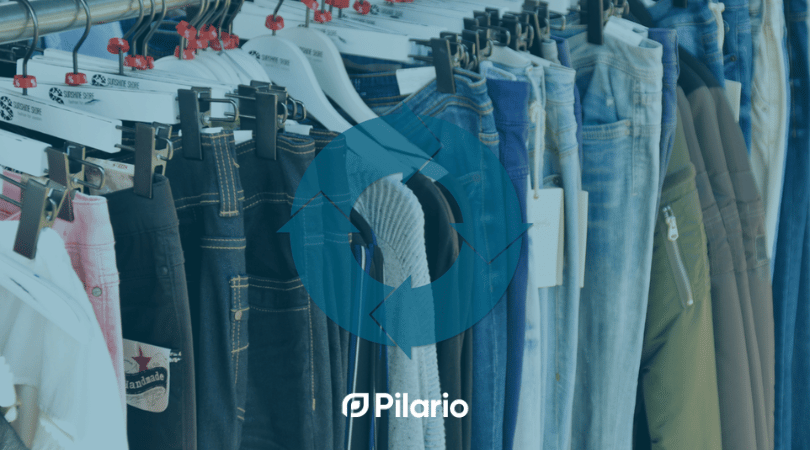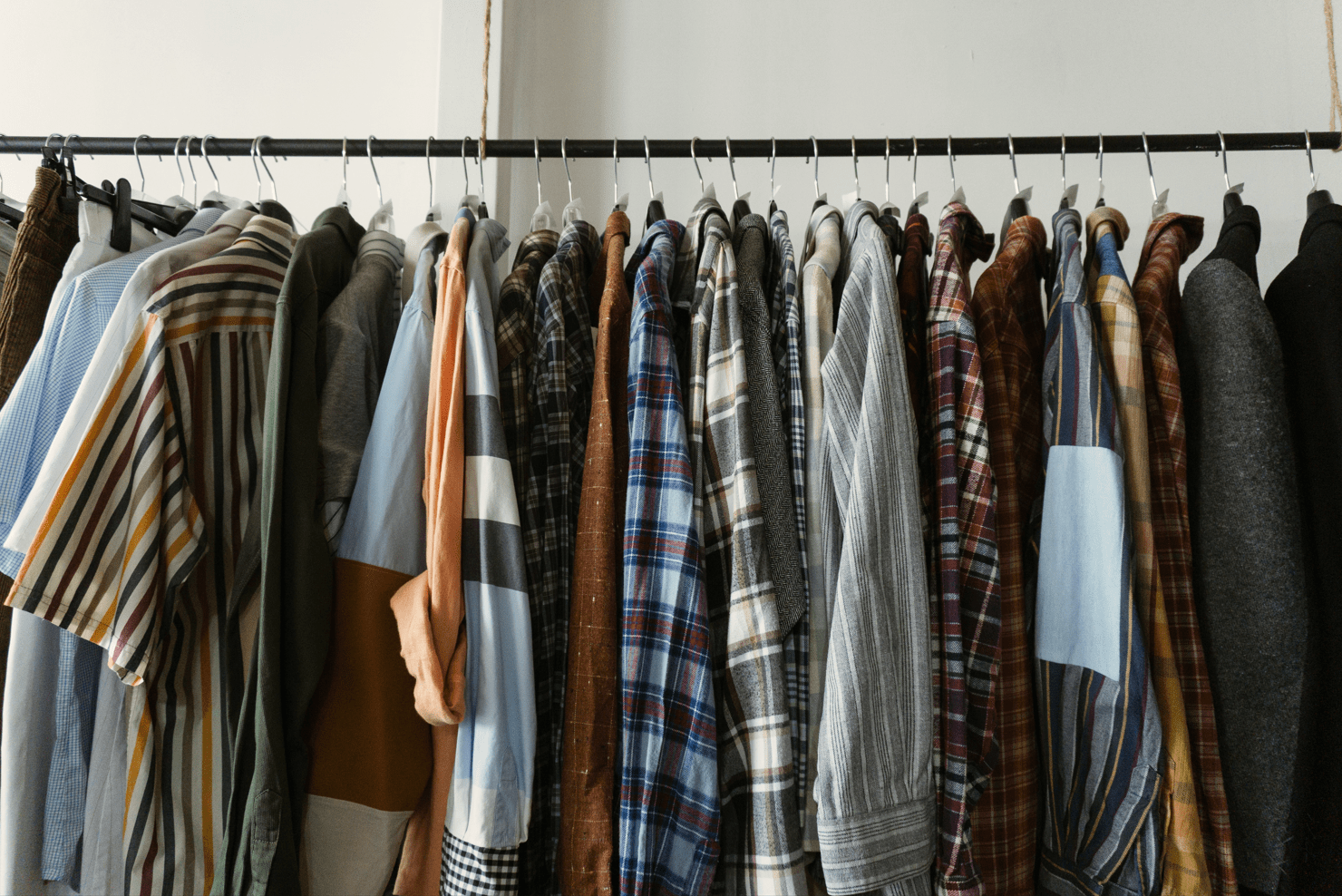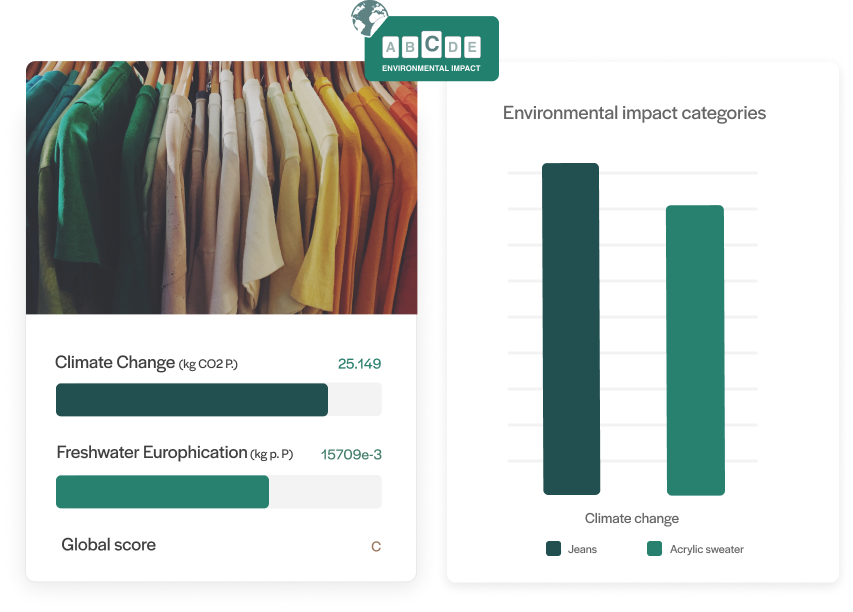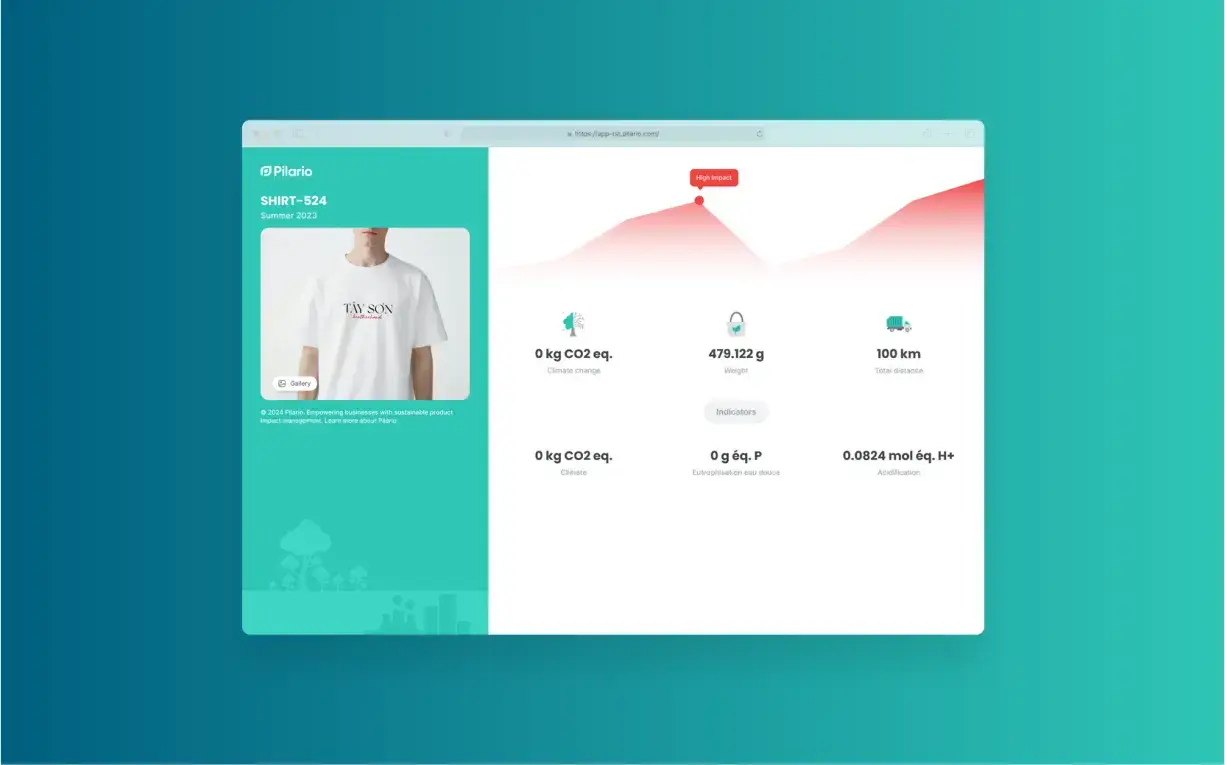22/08/2023
Decoding Eco Contributions: AGEC Law's Impact on Textile Industry
Learn more about the Eco Contributions and AGEC Law's impact on Textile industry.

11 August 2023
In today’s world, sustainability and environmental awareness have become increasingly important. Consumers are seeking products that not only look good but also have a positive impact on the planet.
The French government passed the AGEC law in 2020. The AGEC Law, specifically Article 15 mandates environmental score labels on textile products sold in France by 2024. This labeling system, developed by ADEME (the French Sustainable Transition Agency), will provide consumers with information about the environmental impact of the textiles they purchase.
Just as Nutri-Score simplifies comparing food, environmental textile scores simplify comparing the environmental impact of those textiles. From organic cotton to recycled materials, this labeling system showcases the efforts of brands in minimizing their ecological footprint.
Explore the impact of the French apparel standard on the fashion industry and how Pilario’s SaaS solutions can assist you, during the process.
On 10/02/2020, France adopted the AGEC Law, which consists of 130 articles and is part of the French environmental code. Specifically, articles 13, 15, 17, 35, and 62 cover the Apparel (textile) and Footwear sector.
Article 13 of the AGEC law mandates environmental labels informing consumers about a product’s environmental impact across its life cycle, from raw material extraction to end-of-life disposal.
The environmental display requirement was further expanded by the ‘Climate and Resilience’ Law (n°2021 1104) on August 22, 2021, to include more product categories, such as furniture and electronic devices.
This regulation doesn’t only impact French companies. It applies to all producers, importers, distributors, or other parties with an annual turnover exceeding 50M€. They must comply if they place at least 25,000 waste-generating consumer products in the French market.
An exception exists for products placed on the market between January 1, 2023, and March 31, 2023, for their last units.
In 2024, the law will extend to an annual turnover of more than 20 million euros and at least 10,000 pieces on the French market.
And in 2025 the decree will extend to an annual turnover of more than 10 million euros and 10,000 pieces on the French market.

Ademe’s environmental labeling is an eco score that provides consumers with information about the environmental impact. The labels are based on a set of criteria that assess the environmental impact of a textile throughout its product life cycle.
They have introduced visual indicators (A-B-C-D-E) to assist consumers in making informed, sustainable choices. These indicators allow consumers to see at a glance how sustainable a particular textile item is.
The eco-score textile is a powerful tool that can help consumers make more sustainable choices about the clothes they buy. Furthermore, it helps brands communicate their commitment to sustainability to stakeholders. By 2024, every item of clothing sold in France will require a label detailing its precise climate impact. The rest of the European Union expects to follow a similar rule by 2026, called the PEFCR Apparel & Footwear.

The calculation of the environmental impact of textiles takes into account the following five factors, as defined by the ADEME framework:
This results in a calculated rating from A to E, which considers the textile’s entire life cycle, from the extraction of raw materials to the disposal of the product, using life cycle assessment (LCA) methods.
The current environmental labeling applies to three categories: clothing, shoes and other textiles.
In a significant move for environmental awareness, France’s government has launched the Ecobalyse tool. This early test version aims to show the way we measure the environmental impact of clothing and food items using LCA analysis. While it’s not yet set up for large-scale calculations, it offers a basic foundation for brands and experts to come together. In the coming time, Ecobalyse is expected to align with the official French methodology for eco-scoring. Interested parties can already find a portion of its documentation online.
The first version of the Ecobalyse tool offers a glimpse into the future of eco-conscious fashion, illustrating how technologies like Ecobalyse and Pilario’s BPX Textile solution are essential for making more eco-friendly choices. Unlike Ecobalyse, Pilario’s tool excels in scalability, providing life cycle analysis for your full product line in one go. Furthermore, Pilario enhances brand alignment with customized end-user communication solutions, ensuring your landing pages perfectly reflect your brand’s image. But also showcase exactly what brands want their audience to see. Above all, you can create virtual scenarios to apply ecodesign principles to your textiles, optimizing their environmental footprint

In our opinion, France is setting the standard for sustainable textile practices in the European Union. With its national regulations, France is setting a benchmark for upcoming EU legislation. We expect that by 2026, the EU will implement a similar rule, transitioning to an elaborated PEFCR model for the textile industry. This initiative not only reflects France’s commitment to environmental stewardship but also positions it as a leader in promoting sustainable development within the textile sector across Europe.
Pilario stands out by delivering comprehensive LCA analysis across your entire product range, setting a new standard in scalability and precision for environmental calculation and reporting. Our software, particularly the BPX Textile Tool, is not only powerful but tailored to the textile industry, helping you stay ahead with eco-labeling requirements.
With Pilario, calculating and projecting the environmental impact of your entire portfolio becomes straightforward, ensuring you meet future regulations while enhancing your brand’s image with customized communication tools that spotlight your commitment to sustainability. Above all, you can create virtual scenarios within our software to ecodesign your textiles, optimizing their environmental footprint effectively.
Curious about learning more?
Book a demo with one of our sustainability experts today and see firsthand how Pilario can help you make sustainability a cornerstone of your business strategy.

22/08/2023
Learn more about the Eco Contributions and AGEC Law's impact on Textile industry.

08/03/2024
Discover how to navigate and benefit from Product Environmental Footprint Category rules in our in-depth guide.

15/03/2024
Discover how to navigate and benefit from Product Environmental Footprint Category rules, in our in-depth guide.

22/09/2023
Unlock sustainable success with LCA, PEF, and PEFCR. Understand environmental impacts, gain trust, and comply with EU standards effortlessly.